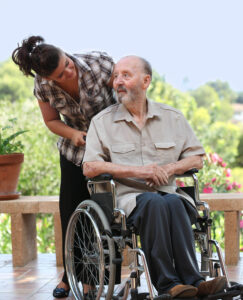
Respite Care: Assisted Living Spanish Fort AL
If you’ve ever heard about respite care at assisted living, you might not understand exactly what it means. Respite care is short-term care. It’s a break. It’s a temporary option that is available at some of the finer assisted living communities across the country.
It’s not available at all assisted living facilities, though, so you have to make sure it is an option before you begin talking about it with an elderly person.
Often, people assume respite care at assisted living is just for seniors. Not true. While it is true that only elderly men and women — usually at least over the age of 55 or 60 or 65, depending on the facility and its requirements — respite care can also be for the younger family caregiver.
No, that doesn’t mean a person in the 30s or 40s who’s taking care of an aging parent or grandparent can go and spend time at an assisted living community just relaxing. It means the senior can stay at that facility so the family caregiver can get a much-needed break or focus on other things they need to focus on, like work, their own children, or other responsibilities.
Millions of Family Caregivers Get Overwhelmed
There are well more than 44 million family members taking care of aging or disabled loved ones in the United States (Forbes). Most of them do this job out of a sense of responsibility. They assume they have to.
It doesn’t matter whether it’s a grandparent, parent, spouse, or even a disabled child; they simply assume this is their job, something they must do.
In reality, there are 20 other elder care choices they can make, too. Assisted living — for aging seniors who need support– is one of them. Plus, for those assisted living communities that offer respite care, it can make a world of difference to the family caregiver who is burning out.
Many of those millions of family caregivers end up burning out within a few months, if not sooner. They may continue pressing on, keep striving to do the right thing, pushing past their breaking point, but eventually it’s going to cause a number of problems.
It can cause harm to the relationship with the person they’re supporting, health issues for themselves, and even relational problems with their friends and other family, including a spouse or children.
How Does Respite Care Make a Difference?
When a family caregiver is burnt out, they need to recharge. They need to step away from the situation. Yet, they don’t want to leave that elderly person completely alone, do they? Of course not.
Respite care at a quality assisted living community would allow the senior to spend the overnights, a few days a week, or a few weeks at a time at the facility surrounded by experienced staff members and other seniors who need support.
It can give that family caregiver a much-needed break, but it can also show the elderly person exactly what assisted living is and what it can offer for their future.


Follow Us!